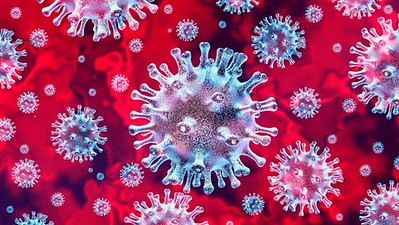Phaahla: There is no need to panic

Health Minister Dr.Joe Phaalhla has urged South Africans not to panic about the emergence of the Omicron variant of the coronavirus.
Speaking at a virtual media briefing on Monday, Phaahla and a team of scientists moved to allay fears, as many countries reacted to Omicron by imposing travel bans on South Africa.
Protection from current vaccines expected to remain strong
Epidemiologist Professor Abdool Karim said current vaccines are expected to provide protection against severe illness.
“Protection of the vaccines is likely to remain strong. I don’t know this definitively – the studies are being done – but based on what we know, we can expect that the vaccines should hold well in preventing hospitalisation and severe disease,” said Abdool Karim.
Phaahla said there was no need for panic.
“We have been here before, this is not new territory for us. We now have more than 20 months’ experience in terms of COVID-19,” he said.
Omicron was not a surprise
Karim said the emergence of Omicron was not a complete surprise.
“We were not caught with our pants down. We expected and prepared for a new variant and a fourth wave as far back as September,” he said.
Scientists continue working to understand the way in which this variant, which has 30 mutations, works.
He said it will take a few weeks for scientists to gather more information on the characteristics of Omicron.
However, in the meantime, they can extrapolate based on the mutations they have observed.
“We can get some idea of what the likely scenarios are and we can plan and prepare, and respond, based on those likely scenarios,” he said.
More children are being infected
While the current spike in infections was initially driven by younger people, those dying are over 65, said Dr. Wassila Jassat of South Africa’s National Institute for Communicable Diseases (NICD).
She added that a higher number of children under two were getting infected.
“We may need to look at paediatric bed preparedness”, she said.
Get vaccinated against
Under South Africa’s vaccine programme children aged between 12 and 17 are being given one dose of the Pfizer vaccines. The government is focusing on vaccinating 70 percent of the adult population by mid-December.
Most patients being admitted to hospitals are unvaccinated, Jassat said.
Unvaccinated patients fared worse than vaccinated ones, adding that 87% of all admissions in Tshwane are unvaccinated patients.
“In Tshwane, 13% of hospital admissions are vaccinated people and 87% are unvaccinated people. There is a much higher risk of death among unvaccinated patients who get admitted than vaccinated patients,” she said.- Heath-e News
Author
Republish this article
This work is licensed under a Creative Commons Attribution-NoDerivatives 4.0 International License.
Unless otherwise noted, you can republish our articles for free under a Creative Commons license. Here’s what you need to know:
You have to credit Health-e News. In the byline, we prefer “Author Name, Publication.” At the top of the text of your story, include a line that reads: “This story was originally published by Health-e News.” You must link the word “Health-e News” to the original URL of the story.
You must include all of the links from our story, including our newsletter sign up link.
If you use canonical metadata, please use the Health-e News URL. For more information about canonical metadata, click here.
You can’t edit our material, except to reflect relative changes in time, location and editorial style. (For example, “yesterday” can be changed to “last week”)
You have no rights to sell, license, syndicate, or otherwise represent yourself as the authorized owner of our material to any third parties. This means that you cannot actively publish or submit our work for syndication to third party platforms or apps like Apple News or Google News. Health-e News understands that publishers cannot fully control when certain third parties automatically summarise or crawl content from publishers’ own sites.
You can’t republish our material wholesale, or automatically; you need to select stories to be republished individually.
If you share republished stories on social media, we’d appreciate being tagged in your posts. You can find us on Twitter @HealthENews, Instagram @healthenews, and Facebook Health-e News Service.
You can grab HTML code for our stories easily. Click on the Creative Commons logo on our stories. You’ll find it with the other share buttons.
If you have any other questions, contact info@health-e.org.za.
Phaahla: There is no need to panic
by Kalayvani Nair, Health-e News
November 30, 2021



